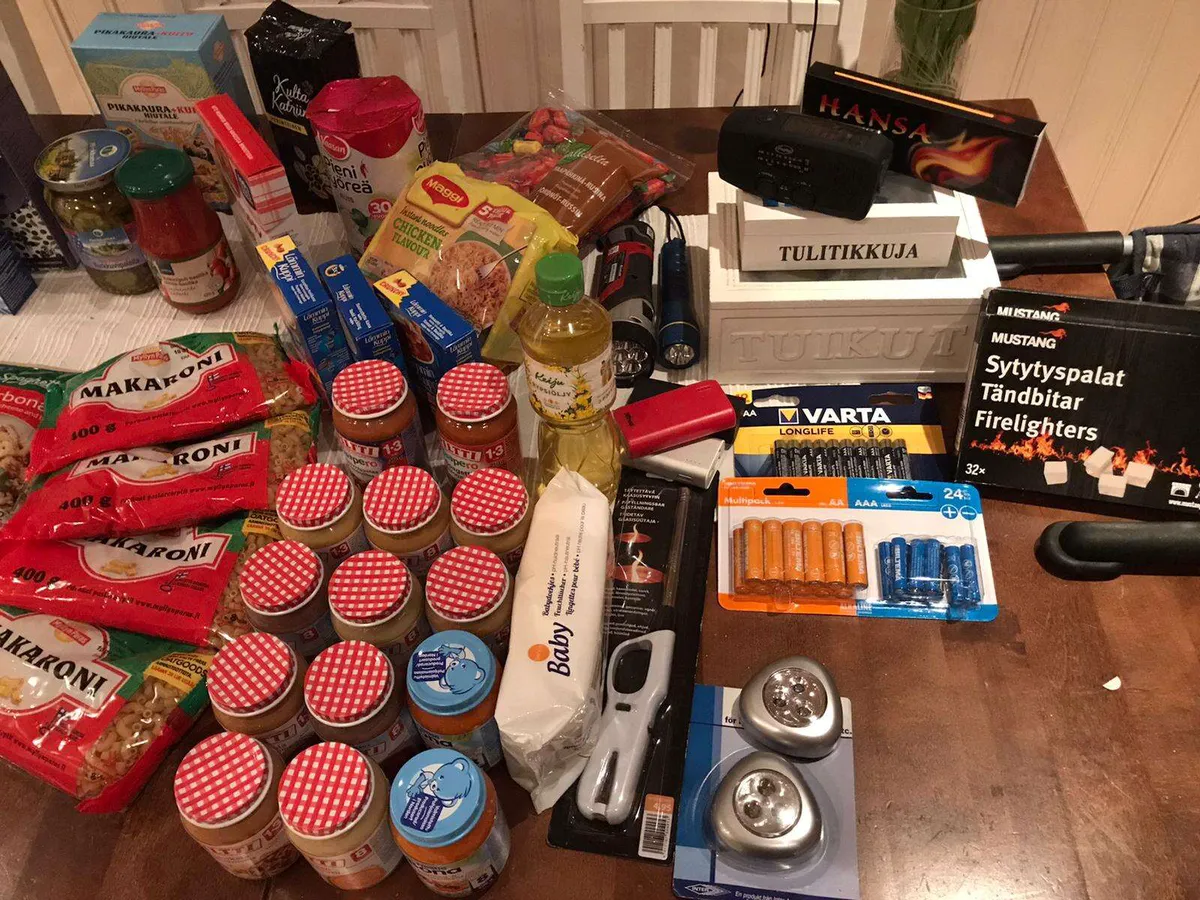The EU wants to be better prepared for war and different crises. That’s why the Commission introduced its so -called standby strategy on Wednesday.
The Commission’s readiness report states that Russia’s illegal offensive war, growing geopolitical tensions, hybrid and cyber attacks, climate crisis and natural disasters have become a permanent component of modern reality, and therefore Europe must be better prepared.
The Commission has copied the President of the Model of the Model of Society as a whole Sauli Niinistö An earlier report by the Commission.
The Commission proposes that every citizen should store sufficient food to be self -sufficient for at least three days in the event of a crisis.
The Finnish preparedness plan also says that homes should be able to survive independently for at least three days in the event of a disruption, and there should be food, water and medication at home.
As concrete measures, the Commission also wants to improve crisis alarm systems, such as natural disasters and fires.
“Families in the flood areas should know when water will rise. Early alarm systems can prevent the cost of losing precious time in areas where fires strike,” described the Commission chairman Ursula von der Leyen This is Wednesday.
The Commission’s readiness report also emphasizes the ability to respond to cyber threats and cooperation between civilians and soldiers. As a concrete action proposal, the Commission wants to increase European -wide civilian and soldiers’ preparedness exercises.
The Commission also proposes that “EU Crisis Center be established to coordinate cross -border measures” and to increase the storage of critical equipment and materials to ensure that, for example, health and water care operates in crisis situations.
Facts
The seven priorities of the Commission’s Preparedness Strategy
Anticipation and prediction: The EU must have the ability to identify and analyze upcoming risks and threats. In practice, for example, the aim is to improve early warning systems.
Resilience of the vital activities of society: Ensure the continuity of essential services and infrastructure such as health care, traffic, drinking water, telecommunications or public administration services in the event of a crisis.
Population readiness and resilience in society: Prepare and react to crises to authorize citizens and communities.
Public-private cooperation: Promotes cooperation between governments and industry to improve readiness.
Civilian military cooperation: Strengthen coordination between civil and military authorities.
Coordination of crisis response and effective decision -making: Improve the EU’s ability to control crises and react to emergencies.
Strength through external partnerships: Collaboration with international partners to deal with cross -border threats.
The Commission report also emphasizes the strengthening of EU -NATO cooperation.
“In the strategy, we build a comprehensive picture of the threats we face, increase the risk of citizens, enhance civil and military cooperation, and work more closely with our external partners such as NATO,” said a high representative of the EU’s foreign and security policy. Kaja Kallas.
Preparedness.
RKP Euro Reporter Anna-Maja Henriksson writes to the Commission. He suggested that all citizens should have a practical preparedness guide. Archive picture.
Kuva: Inka Soveri
More concrete
The Commission’s proposal has already been criticized for too little concreteness.
RKP: n euro successor Anna-Maja Henriksson And the other two Renew Group MEPs were already written to von Der Leyen, Chairman of the EU Commission, and suggested that the EU should make a practical preparedness guide for all citizens based on Finland and other Nordic guides.
According to Henriksson, it is important that the population of 450 million in Europe knows how to prepare for different crises and therefore every citizen should have a preparedness guide.
“Now is the time of the EU to act coordinated in a coordinated way and to make sure that no citizen will be left without the necessary information. As Europeans, we are only as strong as our weakest run,” says Henriksson.
